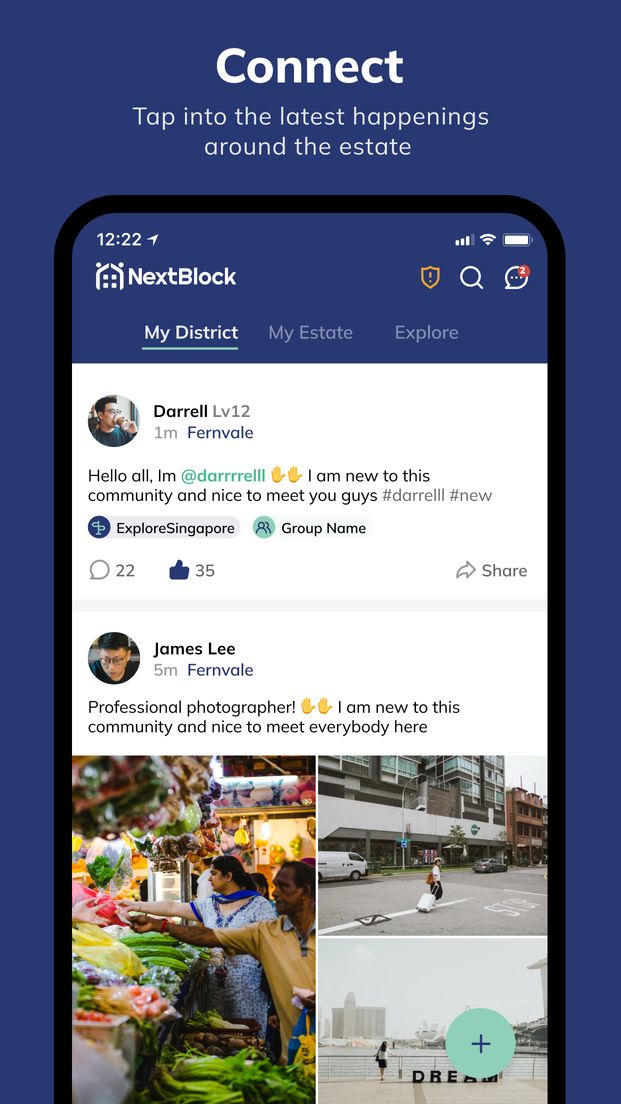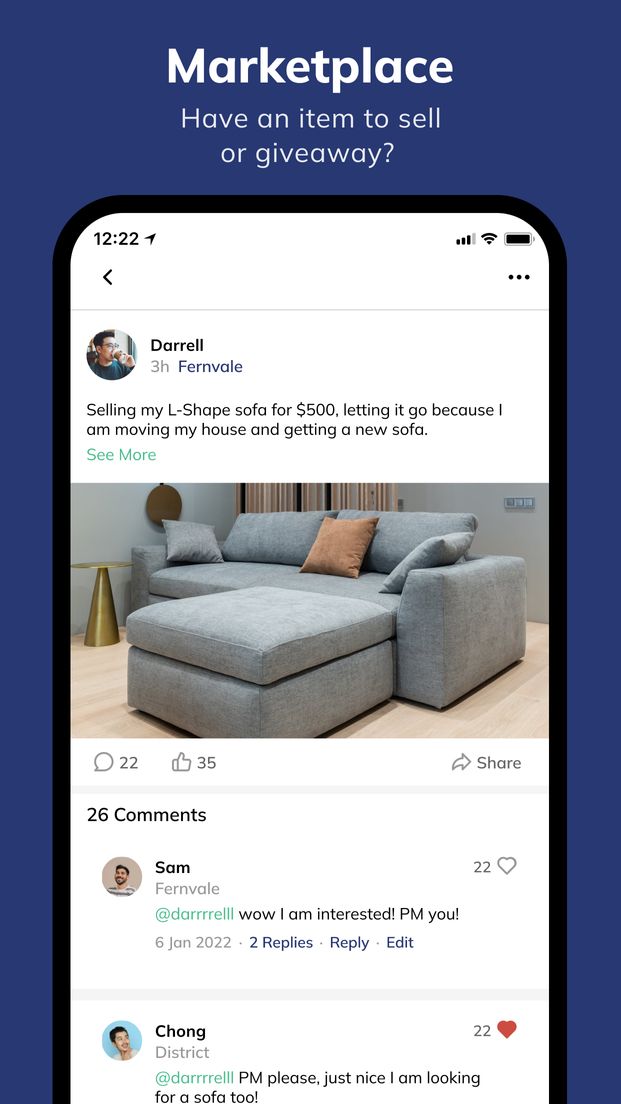Can you share your earliest memory of the “Singapore neighborhood” that made an impression on you all these years?
I made the transition from a kampung to HDB and what I can resonate strongly with is the close-knit community during the kampung days. Back then, people left their doors open, kids went around different houses to play games like pak gongli (marbles), and everyone knew each other’s name and story. Our parents could also easily drop us off at a neighbors’ place when they had a last-minute emergency. We would also always offer to help when a neighbor was in need.
What I also remember and loved from those days was that we were so immersed with the different cultures and celebrated every festival together as if it was our own. These bonds are something that I held onto dearly growing up.
From your point of view, what has changed now? Are there certain things you experienced growing up that you wish you could relive again?
I feel that people are more, in a way, “closed up” now. That “paiseh” feeling that comes from Asian culture is also a bit more prevalent. These days, people are more conscious of their privacy, thus making less or zero attempts to initiate a conversation or socialize with next door neighbors.
With the advancement of technologies and the pandemic, more people prefer to communicate over digital channels as opposed to having face-to-face interactions. I often ask myself and my team, how many people do you know within your block or neighborhood? I would like to relive some of the kampung connections and see more people go from strangers-to-neighbors-to-friends.
Tell us the story of how NextBlock came to be. What were you doing at that point of time, what inspired it, and what kind of research was involved for it to address the needs of its users?
NextBlock came about when I was in my previous role at a real estate tech startup where we were trying to build a social networking app for people who stayed in condominiums. I have always been in a strategic and front-facing role. However, with zero background in community building, I had to start from scratch by referencing organizations that were doing something similar and creating the right product to fit the market we were in.
I was inspired to kickstart my own project when I found help moving into my matrimonial home. My neighbors came together and set up a group chat before we even shifted in. As a group, it was more time efficient and cost effective to get things done together, such as getting recommendations or getting a bulk discount if we needed some form of help.
Based on my own experiences, I realised that this might be a possible pain point for people shifting into a new estate/environment without knowing anything about it. There’s also a Chinese saying, “远水救不了近火,” which means means it’s easier to get neighbors to attend to a crisis than relatives who are staying a distance away.
Can you give us an idea of what the NextBlock user is like? What would they use the app for and how does it complement their daily life?
The NextBlock user could be anyone around – it could be a random kopitiam uncle, a young adult who eats at the cai png stall daily, or even the next door neighbor who owns a bakery on the ground floor of the block.
They can use NextBlock to connect with real and verified neighbors, know the happenings within the neighborhood, and get to know people/start a community with the same interests. Perhaps they could also use the app to share deals and promotions within the area or even use the platform to give away some of their unwanted items to those who might need it more.
All these “activities” help formulate a type of understanding about their neighbors.
NextBlock is designed to bring back the kampung spirit in a digital era. Can you talk more about this approach, as well as the different features that both older and younger Singaporeans can appreciate?
Before setting up NextBlock, there were some pain points I identified in my previous role. One of these was the authenticity of the people who were on the app. Other social platforms tend to have too many fake accounts and we did not want that. Our assumption was that with real neighbors comes authentic information, stronger relationships, and safer spaces to connect.
As we worked on building the digital kampung, the team had to ensure ease of use without compromising on barriers (such as the verification processes). We utilized a straightforward verification method, such as a unique verification code sent through postal mailers or uploading their proof of residency. Additionally, users can safeguard privacy by choosing what information to share without the need to expose confidential information, such as their mobile numbers. Users who do not verify themselves on the app will have limited accessibility.
Our UX/UI is designed so that people can easily connect with one another and build communities or interest groups amongst themselves. NextBlock aims to help them initiate the first conversation, which would be much easier compared to doing it face-to-face.
We are also constantly checking in with our users on their experience and listening to their feedback to further finetune and improve the product.
Over the years, we have gotten more protective of our personal space and dependent on technology. Beyond going digital, how do you think we can be better neighbors?
To build better relationships, it would be good to take the first step and initiate a conversation, either virtually or in-person. Having an open mind in sharing and consuming content helps in reacting positively to things too. There comes a point where a face-to-face element is necessary, and the team is actively curating exciting offline activations within the neighborhoods to close the gaps.
This is only the first phase and I’m sure you have bigger plans for the app. How do you see NextBlock evolving in the next few years?
I often reference NextBlock to Nextdoor – a similar social estate app in the US that got listed on NYSE last year.
In terms of growth plans, we are looking to build stronger foundations in the business via our people, before expanding into other Southeast Asian markets and becoming a global brand. I am excited for the potential opportunities/verticals that we can work towards as NextBlock is an evergreen need that anyone would require at some point in their life, whether they’re moving into a new home, finding volunteering opportunities, giving away unwanted items, and many more.









.jpeg&w=500&h=550&crop-to-fit)

 Back
Back
